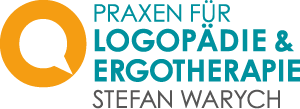Learning therapy
Learning to read, write and calculate is not child’s play for every child – we can help with learning therapy!
As state-certified speech therapists with comprehensive, interdisciplinary ongoing training as learning therapists, we also specialise in the holistic support of children with school and learning problems. Why? Scientific studies have shown that children who have received speech therapy for a speech development or articulation disorder at preschool age are significantly more likely to develop an isolated learning disorder, such as a reading and spelling disorder, at school age. Our many years of practical experience confirm these findings.
Learning is a process that continues throughout life, and it plays an important role especially at the beginning of our lives, as that is when the foundations are laid for independent and autonomous learning.
In the case of a learning disorder, the exact analysis of the circumstances and causes are therefore of particular relevance in order to create individual and effective support strategies, to work specifically on the contents, and to ‘learn how to learn’ in the long term.
Unfortunately, learning disorder (e.g., dyslexia) therapies are not covered by the statutory health insurance and must therefore be paid for privately. However, it may be possible to apply to the authorities for the costs to be covered in accordance with § 35 of the German Social Code (SGB). Please contact us for more information.
Our experienced and committed team of highly qualified experts provides professional support for you and your child in the case of partial performance disorders and school problems. With our learning therapy, we place special emphasis on individual support that includes all the parties involved: the child, the parents, the teachers and possibly other therapists. You and your child benefit from our integrative approach and the interdisciplinary cooperation with the doctors and therapists at the VitalCenter as well as with other specialist disciplines. Our goal is the learning success of your child.
Rely on individual and qualified learning therapy through expert counselling, diagnostics and treatment for:

